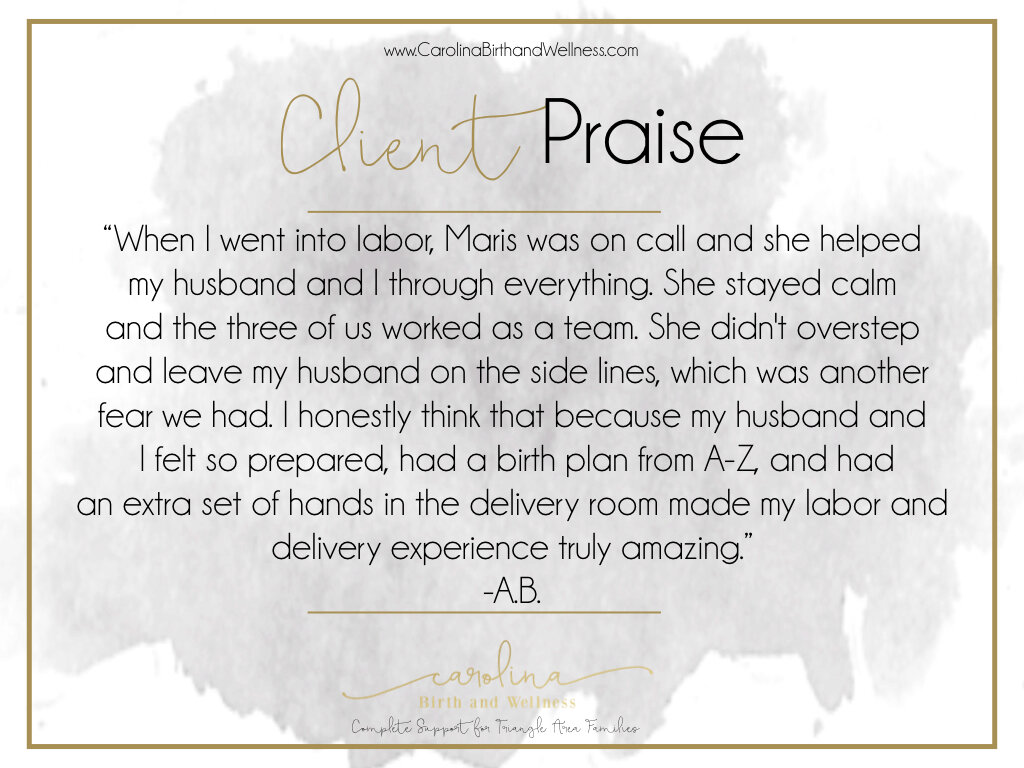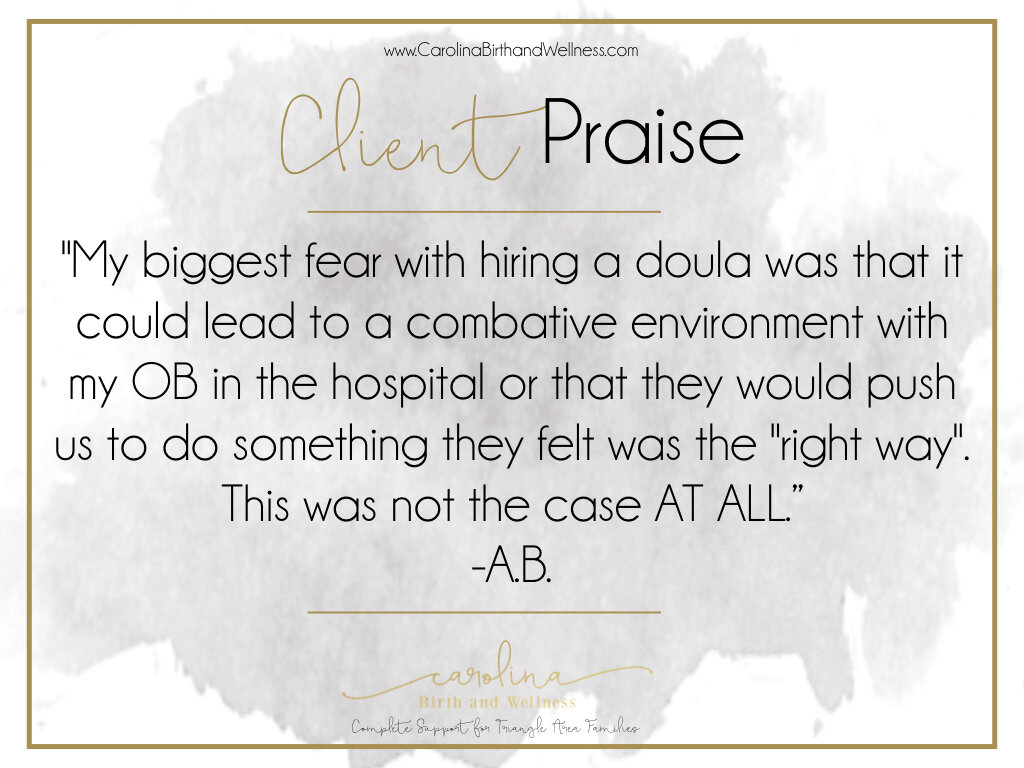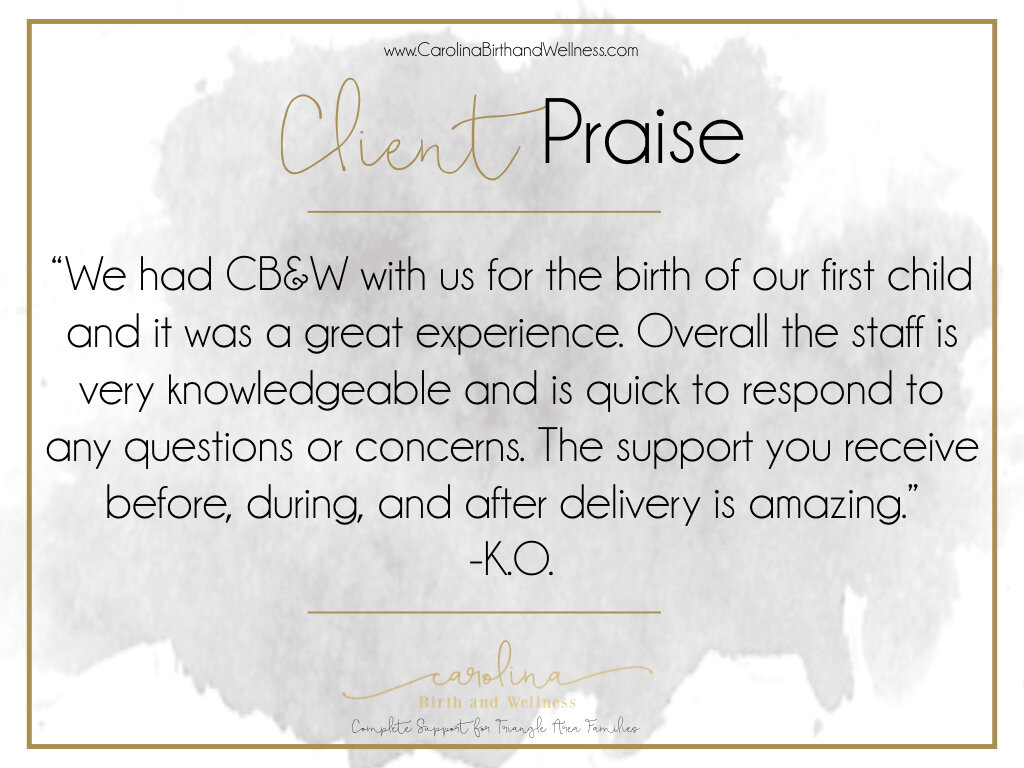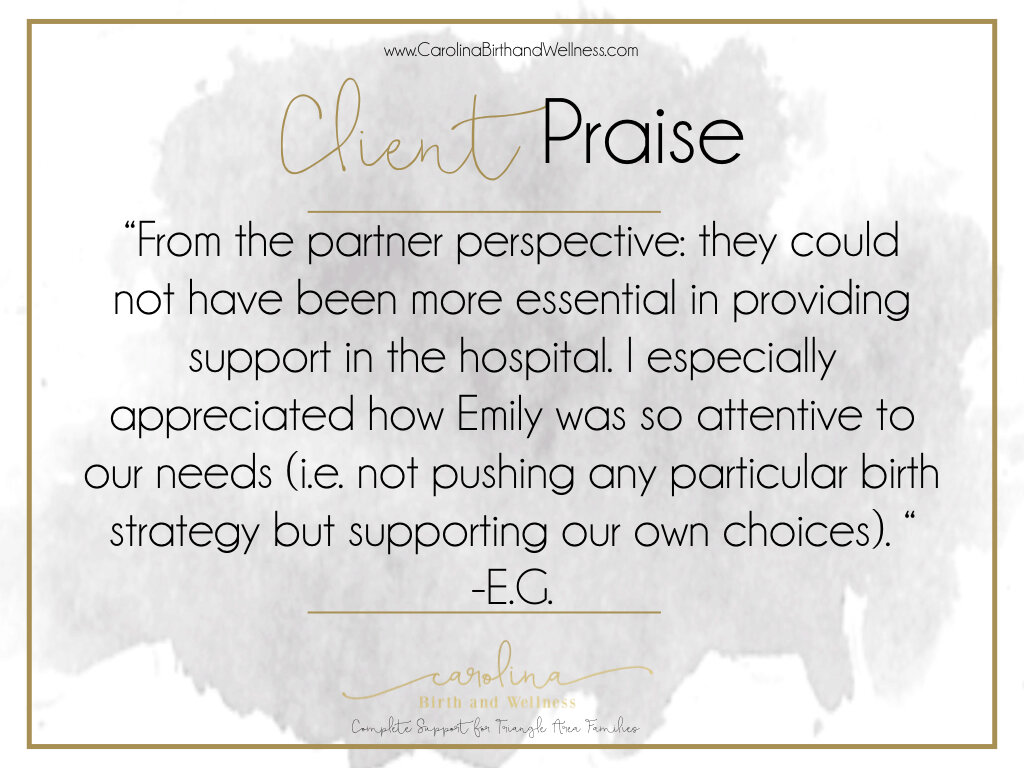Prodromal Labor
Prodromal labor is when there are false labor signs prior to active labor beginning. However, that can be pretty frustrating to hear as a pregnant person because your pain and discomforts are not false. Furthermore, it can be hard to discern the difference between “false” and “true” labor. And lastly, prodromal labor is not false labor, it is just (sometimes very) early labor signs. It is helping your body get ready for active labor.
Coping with Prodromal Labor
Whether your prodromal labor is lasting days, weeks or months, it can be a very physically and emotionally exhausting time for both the birthing person and the partner. Our doulas will support you in whatever way you need during this time. We often suggest that our clients try to relax as much as possible during the last few weeks of pregnancy anyway, but it is especially important to do so when experiencing prodromal labor.
Sometimes talking to someone else, especially your doula, can be encouraging and helpful for support. We will encourage you that you are doing a great job coping with the discomforts. We will reassure you that you and your baby are safe. We will listen as you vent your frustrations. We will give you helpful tips to help distract your mind and body. As doulas, we are going to be whatever you need us to be.
Physically, you are going to feel discomfort and pain. Movement, gravity, and water are all your friends at this point. Walking around your neighborhood, swaying your hips, or dancing naked in your living room will help decrease the pain and distract your mind from what you are experience.
Emotionally, it is important to remember this is not your fault or something that you need to worry about. By relaxing and keeping a positive attitude, you will be better able to keep going through your day, with or without contractions. Furthermore, this can be defeating as you believe labor is starting, only to learn it is not, and can cause doubt about a your birth plans.
How do I Know the Difference Between Prodromal Labor and Active Labor?
It can be challenge to understand when it is the real thing after days, weeks, or months, but that is okay. By having a doula, you have the added bonus of having a professionally trained birth worker able to answer any and all of your questions. It is important to notice if your contractions are changing. Often with prodromal labor, contractions remain irregular and do not increase in intensity.
Difference between Prodromal Labor, Braxton Hicks, and Active Labor
Though the three feel similar, the main difference is the intensity and duration.
Prodromal Labor: Irregular and contractions that do not increase in intensity with minimal cervical change
Braxton Hicks: Painless contractions, often feel like tightening near the top of the uterus
Active Labor: contractions increase in duration and intensity while cervix begins to efface and dilate
When to Call the Doctor or Midwife about Prodromal Labor
We encourage our clients to call their medical team as often as they wish during pregnancy and labor. You picked your doctor or midwife based on their expertise and knowledge, and it is okay to ask as many questions as you need to in order to feel confident and comfortable. So when in doubt, call your medical provider. It is safer to know you called too soon rather than the alternative.
There are Several Times When We Strongly to Encourage You to Call Your Medical Provider:
- If you are having regular contractions
- If your water has broken
- If you are expecting multiples
- If your pregnancy is considered high risk
- If you are GBS+
- If you feel like you need to
Please contact us directly if you have any questions!









